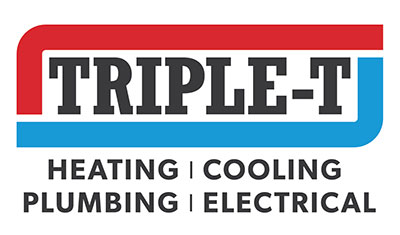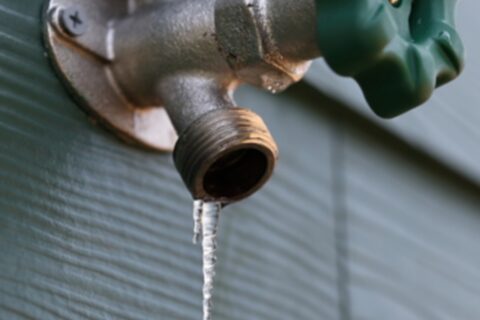10 Tips to Avoid Plumbing Problems
You count on your home plumbing system to deliver fresh water and carry wastewater away. Yet it’s easy to forget about the pipes and drains hidden behind your walls until they start leaking, clogging, or backing up. Thankfully, you can avoid these plumbing problems with a little prevention. Simply follow these 10 tips to keep your home plumbing healthy.
Test Your Water Pressure
Low water pressure is easy to spot because it reduces your faucets and showerheads to a mere trickle. However, high pressure is harder to detect. Ideally, your water pressure should be between 40 and 60 pounds per square inch (psi). Anything higher than 80 psi puts undue stress on your pipes and plumbing joints. Such high pressure can even cause water heaters and toilets to stop working properly.
Testing your water pressure is easy. First, purchase an inexpensive water pressure gauge at a home improvement store. Then, attach it to an outdoor hose bib and turn on the water all the way. If the gauge displays a reading outside the recommended range, call a plumber to install a pressure regulator.
Install a Water Softener
Like much of the country, Utah has hard tap water. This means it contains elevated levels of dissolved minerals that leave limescale buildup on your plumbing fixtures and gunk up your pipes. Hard water also makes your appliances work harder and decreases the effectiveness of soap and detergent.
The best way to combat the problems with hard water is to install a whole-house water softener. Not only does this investment help protect your plumbing, but it also eliminates unsightly hard water stains and helps your skin and hair feel softer when you step out of the shower.
Be Careful What You Flush
The only things that should go down the toilet are toilet paper and human waste. Toilet paper is specially formulated to dissolve in water, and waste naturally breaks down as well, even though it can sometimes cause temporary clogs. Flushing anything else down the toilet—including facial tissues, paper towels, dental floss, cotton balls, and even “flushable” wipes—could lead to sewer blockages and unpleasant backups.
Flush Your Drains Once a Month
Hair, soap scum, dried toothpaste, and grease build up in your drains over time. Fortunately, it’s easy to prevent clogs from forming simply by flushing your drains once a month. Start by running hot tap water. Then, pour a cup of vinegar or baking soda down the drain and allow it to sit for several minutes. Rinse with hot water, and you’ll be left with a fresh-smelling, free-flowing drain.
Place a Mesh Strainer Over Sink and Shower Drains
Once your drains are flowing smoothly, you want to keep it that way. The trick is to prevent as much debris as possible from ending up in your sink or shower drains. Mesh strainers are an effective solution, catching everything that makes its way toward the drain. When the screen starts filling up, simply scrape it off into the trash and place it back over the drain.
Avoid Chemical Drain Cleaner
If your drains start to slow, your instinct might be to reach for a bottle of drain opening chemicals. However, this is not the recommended approach. Toxic chemicals can corrode your pipes if used repeatedly. Plus, they only provide a temporary solution. A better option is to use a plunger or flexible drain auger to get things flowing again without resorting to harmful substances. If you can’t manage to unclog it yourself, you can always schedule professional drain cleaning.
Never Pour Grease Down the Drain
Many people believe it’s okay to pour grease down the drain if you run hot water at the same time. The thought is that the grease will stay hot and eventually dissolve. But as you know, oil and water don’t mix. Even if you manage to prevent grease from coagulating in your kitchen drain, it will solidify eventually, causing plumbing problems for you, your neighbors, and the municipal sewer system.
That’s why you should never pour grease down the drain. Instead, collect used cooking oil and bacon grease in a can for later reuse, or dispose of it in the trash. While you’re at it, keep other harmful items out of the garbage disposal as well. Fruit pits, coffee grounds, potato skins, corn husks, and other hard or fibrous items belong in the trash, not down the drain.
Turn Off the Water When You Leave Town
If you’ll be gone for a week or more, consider turning off the water to prevent leaks or frozen pipes. The main water shutoff valve should be located on a wall facing the street on the lowest level of your home. If you can’t find it, it could be buried in a water meter box near your property line.
Replace Plumbing Appliance Hoses
Most washing machines, dishwashers, and ice makers come with a rubber water supply hose. Unfortunately, the rubber can wear out and crack over time, causing a slow, hidden leak to form. To easily prevent this plumbing problem, replace the rubber hoses with braided steel versions, which are far more durable and will last for years without issue.
Schedule Annual Plumbing Maintenance
Despite your best efforts to prevent plumbing problems, issues may still develop slowly and without your knowledge. The best way to protect your pipes, catch small leaks, and keep your drains free and clear is to maintain your plumbing system once a year. A knowledgeable plumber can provide this service for your peace of mind.
Triple T Heating, Cooling & Plumbing offers plumbing maintenance to prevent problems before they start, as well as repair work for when leaks, clogs, and backups occur. With nearly 50 years of experience, you can trust our team to get any plumbing job done right the first time. To learn more about our services or speak with a knowledgeable plumber in Utah County, please call us at 801-798-7711 or contact us online today.


